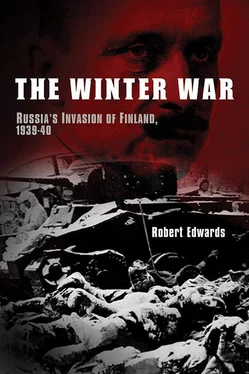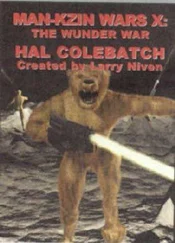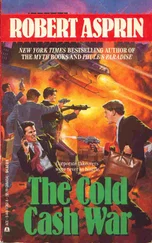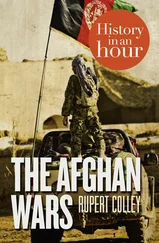There were other aspects to this extraordinary war that made it quite unique; the way in which the Red Army was assessed—incorrectly, as it turned out—by observers, particularly the Germans, who in a sense drew what they wanted from the embarrassing early failures of the Russian war machine. The German High Command came to its conclusions about the Red Army far too soon—bizarrely, it did not listen sufficiently to its Finnish counterpart, who had rapidly developed, at the combat level, a robust respect for the individual Russian soldier.
Inevitably, by invading in 1939, the Soviet Union turned Finland from a disinterested, isolated but essentially neutral neighbour into an enemy (with a massive border). German opportunism (and a military/economic ‘protection’ racket) rapidly converted Finland into a co-belligerent for Hitler’s great doomed undertaking, the smashing of the Soviet State by Operation Barbarossa in the summer of 1941. Without the cooperation of the Finns, who shared the longest western border with the Soviet Union, Barbarossa was not technically possible as it initially stood.
And yet the core stated objectives of the original Russian attack—the provision for the defence of Leningrad against German attack being the main one—were not the basic motivations for Finland to join this fight; indeed, the refusal of the Finns to participate in the destruction of the city became a cause of serious friction between Helsinki and Berlin later in the larger war. Finland merely wanted its territory back; it had fought for it twice already, after all.
Perhaps the most remarkable aspect of the whole short conflict was the complete inability of any other great power to coordinate itself in a manner that could be of constructive use to the Finns, particularly the United States of America. President Roosevelt, hampered in his objectives by his Secretary of State as well as the powerful isolationist lobby, struggled (not very hard) throughout the duration of the war to provide assistance. In this, he utterly failed. However, Roosevelt’s experience in the matter of the Finnish war would stand him in good stead when it came to providing assistance of a more useful kind later on, particularly for Great Britain and even, with great irony, for the Soviet Union. In the former case, he even employed the same imagery, of the neighbour’s house aflame.
As a direct result of the Winter War in Finland, the Soviet Union became and remained isolated from every great power save Germany. By its conduct, the Soviet Union had revealed two very important characteristics about itself; the first being that the regime had no qualms concerning the acquisition of territory (in total contradiction to publicly stated policy) and the second that it was, despite the signature of the August 1939 non-aggression pact and the shared carve-up of Poland, still terrified of a German attack—correctly, as events turned out.
When that invasion came the result, famously, was the near destruction of the Red Army itself. We can only speculate as to what would have happened if the Soviet Union had had to face the Nazi invasion in the same military state it had been in in September 1939. Finland’s Winter War did not, of course, change all that, but the shortcomings of the Red Army as it attempted to simply roll over its western neighbour revealed some terrifying truths, the most obvious being that it was not ready for war. This was ironic, given that the Red Army under Georgi Zhukov had delivered a very competent victory over the Imperial Japanese Army the previous September. But that had been an engagement fought over entirely different terrain and against a radically different enemy, in radically different weather.
Inevitably, the Winter War invites comparison with the Spanish Civil War, in so far as it nearly became a proxy conflict, but in truth the differences were vast. Anglo-French policy was also different—from strict(-ish) non-intervention (which included on the part of the French the questionable tactic of interning members of the Comintern’s International Brigades as they straggled back over the Pyrenees) it now segued into a weird hybrid, which outwardly supported the Finns while at the same time used the huge public sympathy which that nation’s plight generated at home to justify armed intervention on the Scandinavian peninsula for an entirely different reason.
By the time of the Anschluss of 1938, the Soviet Union had become conservative, even imperial, in its outlook. It had achieved great power status without major conquest, but only because all its foreign efforts had failed; all it had had to do was survive its own gestation and the vengeance of those it had threatened, whose friends it had killed. To many in the West, whether fellow-travellers, class warriors or merely wishful liberal dupes, the USSR had performed a great miracle. Outwardly, of course, this was so—the Russian project had worked. It had become an economic giant; by Western standards an export-driven money machine. Internally, though, it was clear that this was a nation literally and metaphorically sacrificing its own children. Further, it was generally perceived that the Workers’ and Peasants’ Red Army was the most well-equipped and best-led force on the planet, a military machine easily the equal of the ‘economic titan’ that had forged it. Until 1937, this was probably true.
On the north-western border of the USSR lay Finland, an equally young nation-state and equally wrapped up in a project of its own—the creation of a socially democratic and mixed economy. Finland had declared, and then fought for, its independence from Russia at the earliest opportunity that the Russian Revolution had offered her, and a bloody civil war had been the result. The ‘Whites’, under the military leadership of Baron Carl Gustav Mannerheim, had won, and this remarkable soldier had suppressed the forces of Bolshevism with a Cromwellian ruthlessness, which left the country bruised, angry at itself, but basically whole. The civil war in Finland had, though, offered a dreadful hint of what was to come in greater Russia. By the time the great political crisis—the dictators versus the democracies—arrived, Finland, still gasping from its narrow escape, had taken its place in the ranks of the most advanced nations of Europe.
This had been a gruelling birth for a new nation and of course costly; economically the Finns had since focused on the repayment of the huge foreign loans that they had been forced to assume in order to rebuild their country; by the time of Hitler’s Anschluss, (and even before) they had repaid nearly 90 per cent of the principal, even through the teeth of the global slump. Many other nations had not. Repudiation of obligation was simply not a notion that seemed to occur to the Finns. This was an extraordinary achievement (probably unparalleled in economic history, and a course that many nations had eschewed, preferring to default), but as nothing compared to the military accomplishments that the Finnish would shortly demonstrate.
Finland, as a ‘value-added’ commodity-driven export economy (and a small one) was well placed to profit from the general economic upturn that took place from the spring of 1932 (Dow Jones Industrial Average: 44) and so prospered by comparison with its more industrialized and commodity-short associates and neighbours, particularly Germany. But as Germany started to re-arm, followed by the USSR, Finland remained bent to its task of servicing a crippling level of foreign debt and polishing to perfection its own pet project (and a useful hard currency earner): preparing for the 1940 Olympic Games, to be held in Helsinki. A splendid stadium complex, the work of Finland’s advanced, dreamy and minimalist architects, was nearly ready; nothing would be too good for the hordes of interested visitors who would flock there. Finnair (established in 1924) had already expanded to carry the expected traffic. None of the Fascistic grandeur of the 1936 Olympics would be present; Finland had almost solved its ‘right-wing’ problem by then. Finland was working, it paid its debts, it was clean, bright, new and—most important to the economic environment of the 1930s—solvent. The nation looked forward to giving the world a guided tour.
Читать дальше











